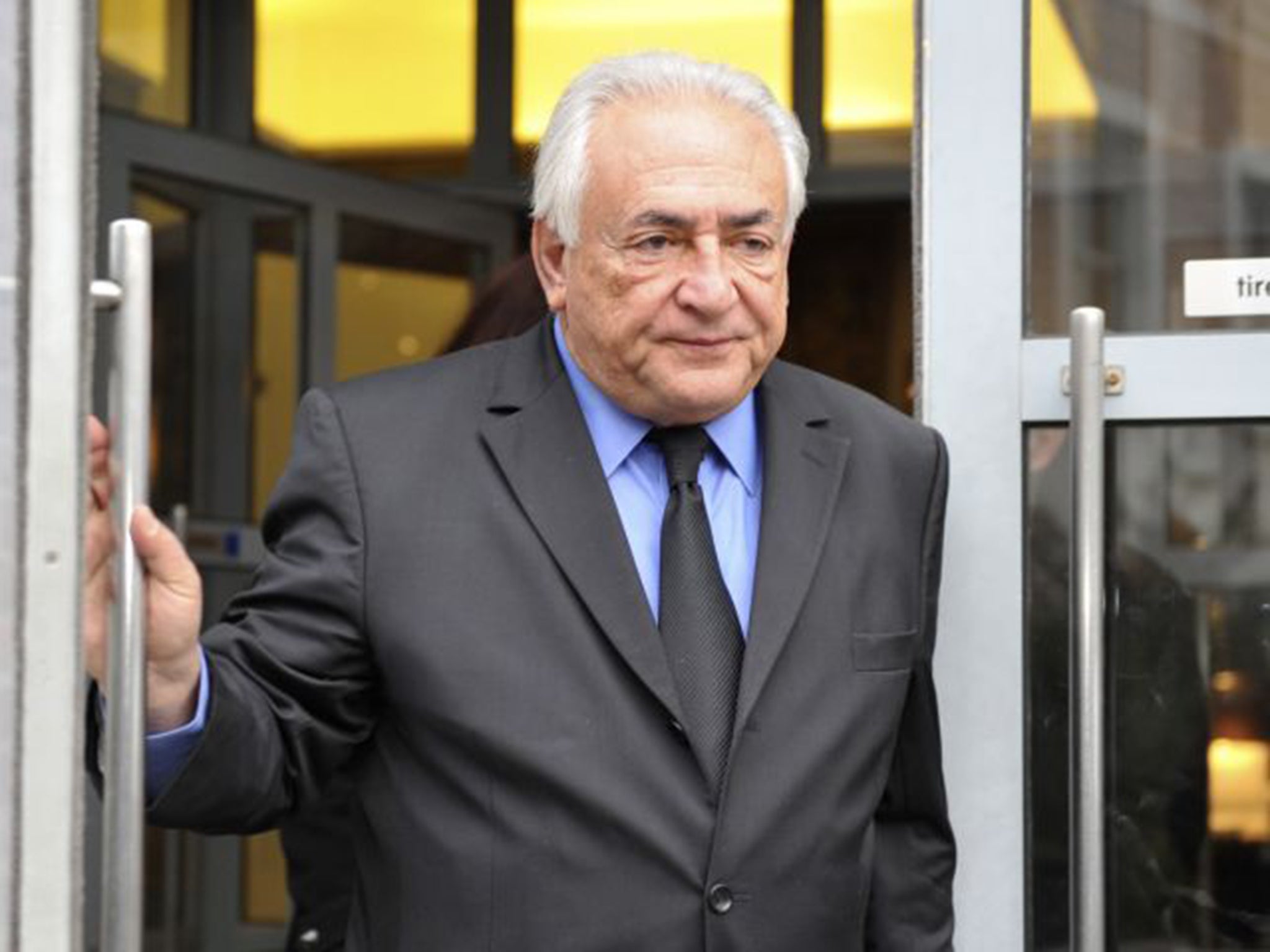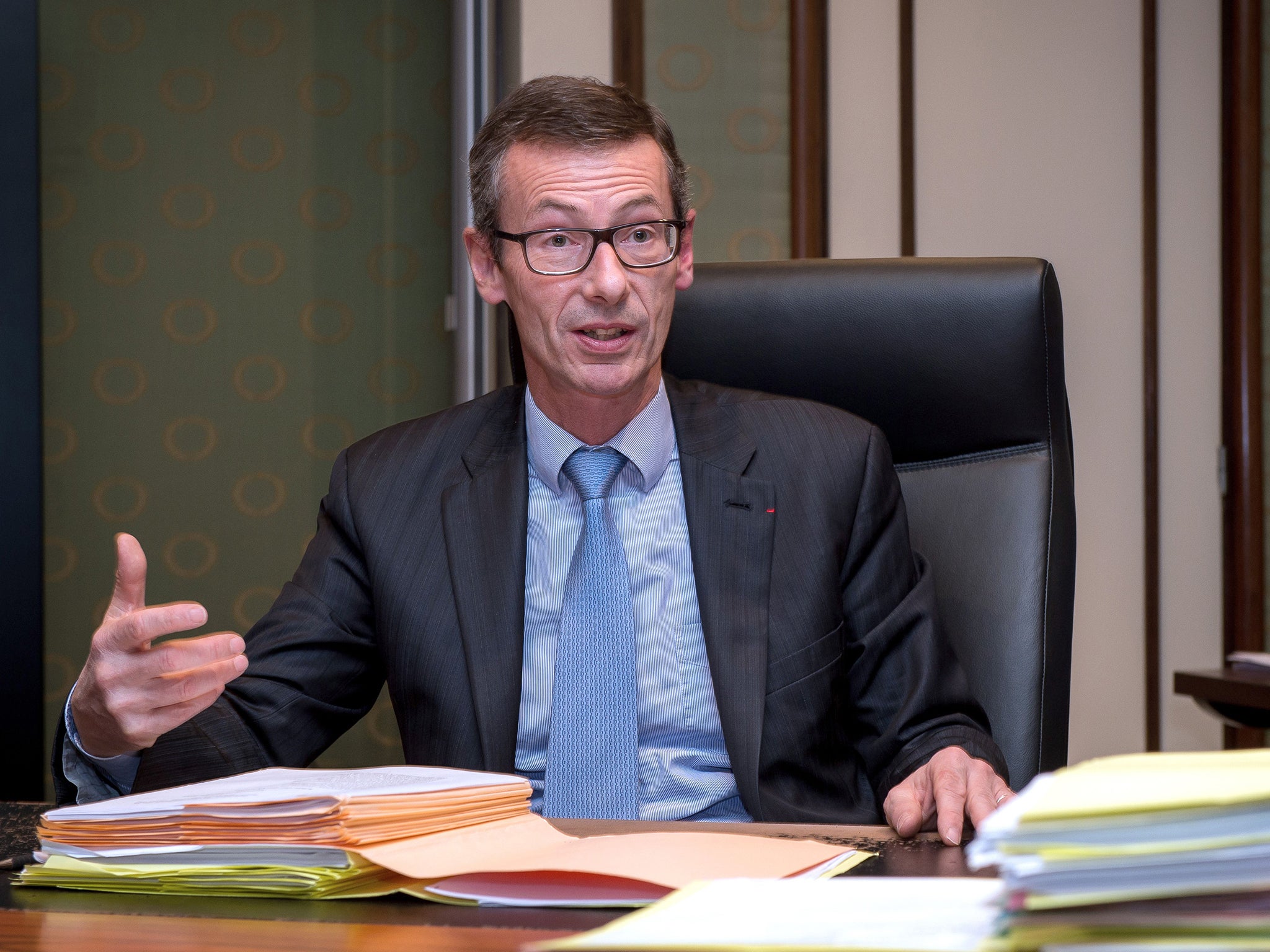Dominique Strauss-Kahn trial: Five of six plaintiffs in pimping trial drop accusations against former IMF chief
Strauss-Kahn has testified to having orgies, to being 'rough' with his sexual 'conquests' and to needing sex with exceptional frequency

Your support helps us to tell the story
From reproductive rights to climate change to Big Tech, The Independent is on the ground when the story is developing. Whether it's investigating the financials of Elon Musk's pro-Trump PAC or producing our latest documentary, 'The A Word', which shines a light on the American women fighting for reproductive rights, we know how important it is to parse out the facts from the messaging.
At such a critical moment in US history, we need reporters on the ground. Your donation allows us to keep sending journalists to speak to both sides of the story.
The Independent is trusted by Americans across the entire political spectrum. And unlike many other quality news outlets, we choose not to lock Americans out of our reporting and analysis with paywalls. We believe quality journalism should be available to everyone, paid for by those who can afford it.
Your support makes all the difference.A high-profile case against disgraced former International Monetary Fund boss Dominique Strauss-Kahn appeared to be weakened today when five of the six plaintiffs in a French prostitution trial dropped their accusations against him.
Strauss-Kahn has testified in the Lille court to having orgies while he was managing the world financial crisis, to being "rough" with his sexual "conquests," and to needing sex with exceptional frequency. But none of that is illegal.
He is accused of aggravated pimping over a series of sex parties in France, Washington and Brussels, while he was leading the IMF, and was married. He's one of 14 people accused of involvement in a prostitution ring run out of the Hotel Carlton in Lille.
Strauss-Kahn insists he did not know the women involved were prostitutes. Two of his co-defendants say they recruited and paid the women themselves, and built a wall of silence to ensure that Strauss-Kahn was not aware.
Lawyers for four prostitutes and an association that had filed suit announced today that they are abandoning their pursuit of Strauss-Kahn, court officials said. The five plaintiffs maintained accusations against other defendants in the trial, but the prostitutes are seeking only one euro in symbolic damages from the others, the officials said.
Only one association, a group pushing to abolish prostitution called Nid or "nest," maintained its accusations against Strauss-Kahn and his 13 co-defendants.
That could still be enough to persuade the three-judge panel to hand down convictions.
Strauss-Kahn faces up to 10 years in prison and 1.5 million euros (£977m) in fines if convicted. But Prosecutor Frederic Fevre could argue for acquittal for Strauss-Kahn during closing arguments tomorrow, focusing instead on getting convictions for other defendants.
Strauss-Kahn's IMF job and presidential chances collapsed in 2011 when he was arrested in New York on accusations that he sexually assaulted a hotel maid. Those charges were later dropped and he settled out of court. He was also accused of attempted rape of a French writer; that case was dropped because the statute of limitations had expired.

The Lille case is the first time he has been put on trial. He openly testified to extravagant sex, but said he thought the women present were "libertines" like himself.
To prove that Strauss-Kahn is guilty, the trial has to show that Strauss-Kahn knew the women were prostitutes, and that he arranged their activities as prostitutes or profited financially from them. Prostitution is legal in France, but it's illegal to organise a prostitution ring or profit from a prostitute's business.
Strauss-Kahn may take the stand himself on Friday for a closing statement. The judges will then decide when to deliver a verdict.
Chief judge Bernard Lemaire opened the trial by stressing the court would not judge sexual activities among consenting adults.
"The court," he said, "is not the guardian of moral order, but of the law."